
On the occasion of the new spring of At Ty 2025, Dan Tri reporter had an interview with the Minister about his "policy marathons" over the past nearly 10 years.

The year 2024 ended with impressive results achieved in 365 consecutive days of efforts by the whole country. On the last day of the National Assembly session (last November), in addition to the economic growth index as reported by the Government, the Minister also announced good news, after 1 year, Vietnam was ranked by the United Nations up 11 places on the national happiness rankings. As a Minister "managing" the social sector, you must be interested and see a lot of meaning in this number?
- The 2024 World Happiness Report represents the United Nations' assessment of sustainable development, published based on a survey of 143 countries and territories. According to this report, Vietnam ranked 54th, a positive improvement compared to 65th place in 2023. In terms of Asia, Vietnam ranked 6th, and in ASEAN, Vietnam ranked 2nd. Such an improvement in the happiness index is very encouraging.
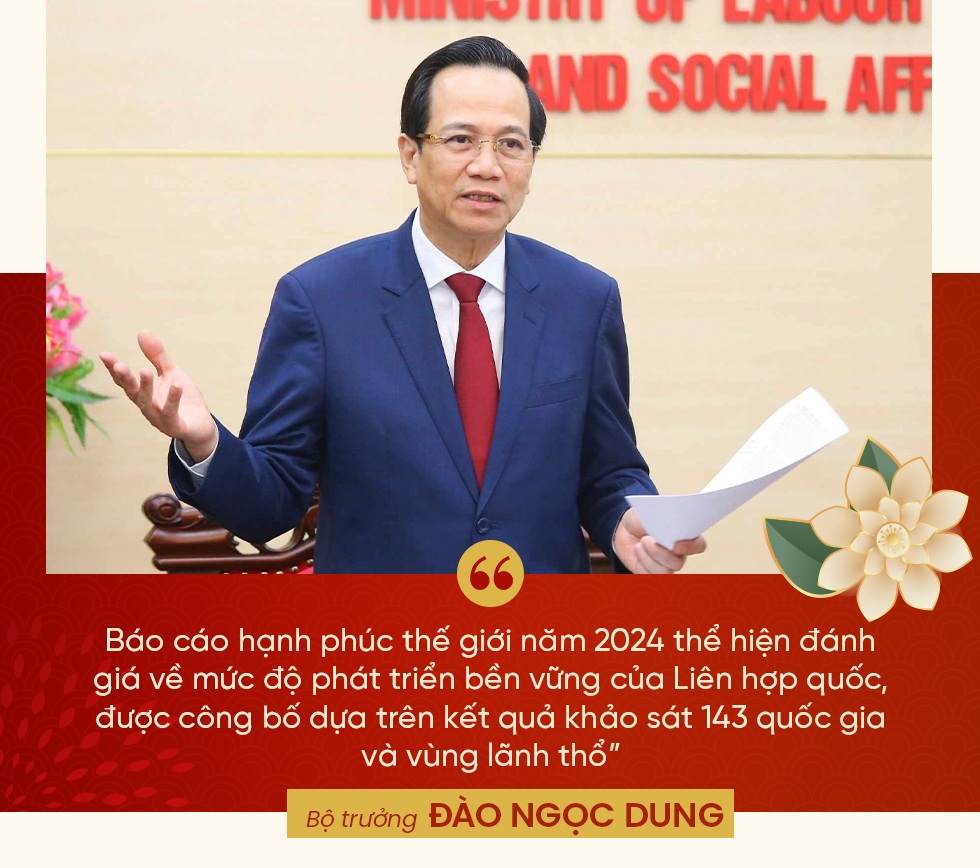
This happiness ranking is based on basic indicators of life expectancy, health, per capita income, social support in difficult times, corruption levels and social trust. These are all important criteria, of primary concern to us social workers. After all, it is the measurement of what people benefit from the fruits of development - an evaluation factor included in the 13th National Party Congress Document. The happiness index shows fundamental changes after nearly a term in which we set this final destination for the development journey.
The results of the world's objective assessment also correspond to the measurement indicators of the social sector that the National Assembly assigned to implement in 2024. Accordingly, we have a year in which policies for people with meritorious services are mentioned as outstanding points, along with sustainable poverty reduction policies for the disadvantaged according to the principle of ensuring minimum security and gradually increasing social assistance levels.
The result of sustainable poverty reduction at the rate of 1% reduction and up to now the multidimensional poverty rate has been controlled at a low level of 1.93%, which is a great effort in the context of consecutive natural disasters, floods and storms. 2024 is also the first year that the labor productivity target increased by 5.56%, exceeding the set requirements.

Thus, to speak modestly and objectively, Vietnam is one of the countries that implements social policies well, especially compared to countries with similar economic conditions. At the end of October, Vietnam was the only country in Asia that was directly invited by the G7 countries to report on typical examples of implementing social policies and promoting the role of people with disabilities and disadvantaged people in society. And at the G20 conference in Brazil in December, Vietnam was also invited to report on its experience in sustainable poverty reduction and participate in the global alliance initiative to fight poverty.
Previously, when planning for 2024, in the socio-economic development target, the National Assembly and the Government raised the issue of striving to maintain the 65th position on the "happy country" ranking. But after 1 year of efforts, the results achieved exceeded expectations, increasing 11 places in the context of a year full of difficulties. Did it bring many surprises to the Minister? What factors led to Vietnam's happiness index rising like that, Minister?
- It must be said that we enter 2024 with many difficulties and many unpredictable problems, but it is not surprising. The goals we set are at the most modest level to strive for, and if we can achieve higher goals, that would be good (laughs).
In general, the reason for this result is first of all because this year we have regained our momentum after a period of great difficulty due to the Covid-19 pandemic that has lasted since the beginning of the term. The economy has recovered positively, with GDP growth for the whole year estimated at 7.09%, higher than the set target. That is a good premise for implementing social policies.
The social sector has also achieved clear results in both awareness and action. As I said above, social security is generally guaranteed, in terms of taking care of people with meritorious services, the disadvantaged, in terms of poverty reduction and especially in terms of labor productivity, it has been significantly improved.
Vietnamese people are happier with the practical support programs of the state. The construction of social housing has achieved positive results. In a short time, the whole country has mobilized over 6,000 billion VND to eliminate temporary and dilapidated houses for people in difficulty. The task is expected to be completed in 2025.
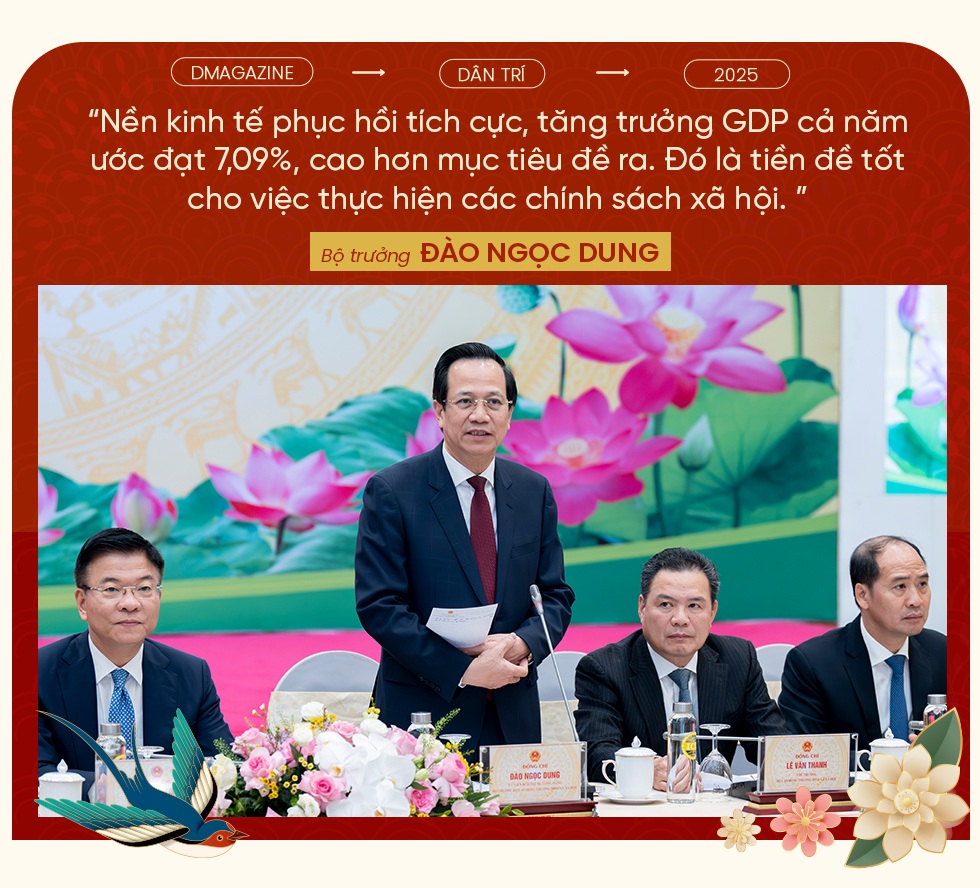
When the North suffered the consequences of storm No. 3, state agencies and organizations mobilized thousands of billions of VND to support the affected people. In those difficult, arduous and challenging times, the spirit of great solidarity, "mutual love and affection", "national love and compatriotism" shone brightly.
At the National Assembly, delegate Nguyen Thien Nhan analyzed that in terms of per capita income, Vietnam ranks 101/176 countries. Thus, compared to the per capita economic index of 101, our happiness index has risen to 54th, reflecting the highly commendable results of the social sector, demonstrating the superiority of the regime.
After 10 consecutive times participating in the happiness country rankings, Vietnam's position on the "overall ranking" has changed a lot, from 95-96 to near the top 50 as it is now. The Minister has repeatedly spoken out and pursued this issue, such as not all high incomes and rapid growth mean happy people. How does the Minister see the change in the direction of assessment taking place?
- We all know that "only with food can we practice morality", economic development makes the country strong, the nation rich. But economic development must go hand in hand with a peaceful country, a prosperous and comfortable life for the people, only then will it be complete happiness, not just having a lot of money will bring happiness.

In fact, since the renovation, our country has undergone many great changes and events. I have witnessed a peaceful, happy and simple life right in our old collective housing area during the poor subsidy period. Then the market economy developed under the management of the state, with the viewpoint of "taking people as the center, not sacrificing progress and fairness to pursue simple economic growth" has changed the face of the country, life is much more prosperous.
Changes took place in every alley, every corner of the apartment building, but there were still places where social evils were concentrated, many families lost children, families were broken because of gambling and drugs. At that time, for many families and many residential areas, happiness was a healthy, peaceful life, not just a more abundant material life than before.

The latest event that the world has just experienced is the Covid-19 pandemic, and even the richest countries are… crying. Obviously, high income and rapid growth do not mean that people are happy and joyful. In that context, happiness lies in the word "an" more than ever. That is why during my nearly two terms as Minister of Labor, Invalids and Social Affairs, I have always kept in mind and done my best for those words "an" ("safety", "social security" and "people's security"). In my opinion, that is also an indicator of trust, the connotation of a happy country.
In fact, considering people's happiness as a measure of social development and progress is a policy that has been affirmed in the Documents of the 13th National Party Congress and the guiding ideology of General Secretary To Lam. This is also becoming a common trend of humanity. People's happiness is identified as the goal of the whole society, the development aspiration of each country and nation.
From a policy at the national level, happiness criteria are now "permeating" into working life. The concepts of satisfactory, sustainable and happy jobs, happy workplaces, and ways to measure development using happiness indexes are increasingly of interest to businesses and workers.
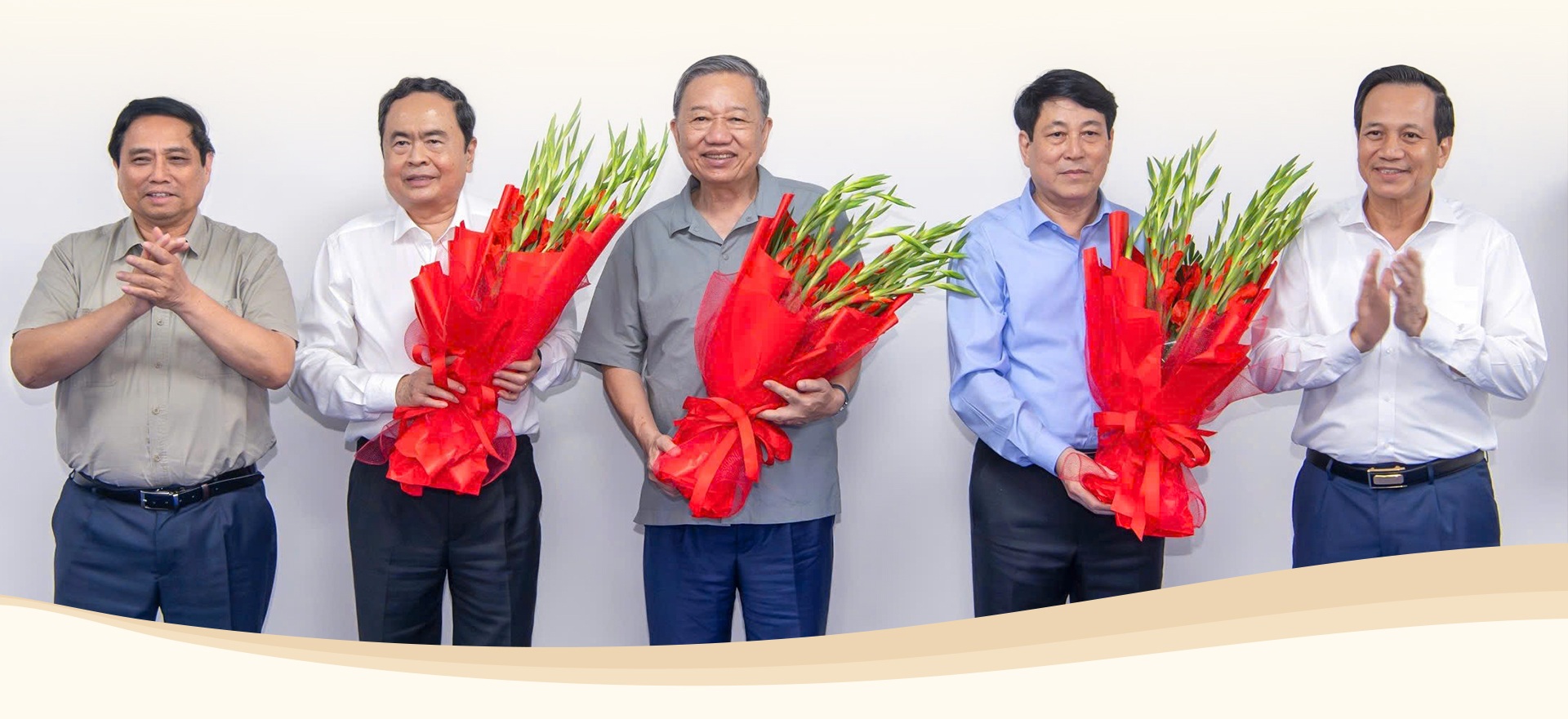

Returning to 2024, the penultimate year of implementing the Resolution of the 13th National Party Congress to bring the country into a new era, is there any long-term issue similar to the "happiness index" that makes the Minister worried?
- In addition to social security in general, the issue that we, the managers of labor - employment and society, always pursue is how to build and perfect a synchronous, flexible, modern and integrated labor market.
In 2024, we will implement Resolution 27 of the Central Committee on salary reform, Resolution 28 on social insurance policy reform, amend the Law on Social Insurance, complete institutional building, and create a labor market with a vision to 2045. This is also the year of major changes in wages, making workers, people, pensioners, and beneficiaries somewhat happy and excited.
Public sector salaries, although not yet reformed as planned, have been adjusted with an unprecedented increase of 30% (the basic salary was adjusted from 1.8 million VND/month to 2.34 million VND/month). Meritorious service allowances increased by 35.7%. Pensions increased by 15%. Regional minimum wages also increased by 6%, salary negotiations were very favorable, reaching high consensus. These synchronous adjustments directly benefit tens of millions of people.
For the production and business sector, we are proud to have early built and formed a wage system based on market principles, contributing to the stable and increasingly "smooth" operation of the market. The minimum wage was applied early and completed through the Labor Code of each period, especially the revised Labor Code in 2019. Up to now, 4 wage zones have been defined, operating a 3-party wage negotiation mechanism: the State (represented by the Ministry of Labor, Invalids and Social Affairs), employers (represented by VCCI, the Cooperative Alliance, major industry associations) and employees (represented by the Vietnam General Confederation of Labor).
The 6% increase in regional minimum wage in 2024 contributes to improving the lives of workers, is also suitable for the production and business conditions of enterprises, and at the same time completes a step of the wage mechanism for state-owned enterprises, contributing to the arrangement, innovation, and improvement of business performance.

The Minister talked about the "wage market" and the results of the establishment of regional minimum wages. This is actually an issue that he has received many questions about during his two terms as Minister of Labor, Invalids and Social Affairs. National Assembly delegates have raised the issue of whether a minimum wage law should be enacted. And his answers each time have been very flexible but also "firm"?
- There are delegates who question me through many sessions and terms (laughs).
Whether or not a minimum wage law is enacted is something that must be carefully considered and its impact assessed. As for determining the minimum living standard and establishing a minimum social security floor through regional minimum wages, it must of course be done and must be done soon and immediately.
Over the past time, we have also seriously absorbed and researched because at times, the regional minimum wage has caused concerns that it slows down and "holds back" the improvement of wages, which is not very meaningful because the wages paid by businesses are mostly higher than the prescribed level... But I would like to say this, the regional minimum wage announced annually is the minimum floor for employees and employers to negotiate and agree on, to demonstrate equality in labor relations, and to demonstrate the value of labor.
We are recognized and highly appreciated by the world, especially the International Labor Organization (ILO) for this. Establishing a minimum wage and collective bargaining, accordingly, are two important tools that complement each other in the wage operation system of a market economy. The minimum wage is to protect the poorest workers, so that employers cannot pay them below the wage level to ensure this minimum living need. The negotiation mechanism through the activities of the National Wage Council provides opportunities to adjust wages for those whose income is higher than the minimum wage, raising the position of workers to the same level as employers in wage negotiations.

The general principle we always maintain is that employees and employers negotiate wages based on the development, welfare income of employees, and regional minimum wages. Of course, I understand that employees are in a weak position, so I have enhanced the role of the three parties: state management agencies, employer representatives, and labor unions. Accordingly, salary adjustments are based on the level of labor productivity growth, ability to pay, price increases, and bilateral agreements. The process of amending the 2019 Labor Code has made great strides in this regard. We have researched, absorbed, and thoroughly explained new issues and recommendations in an open-minded manner.
And indeed, when the Central Committee issued Resolution 27 on salary reform (in 2018), our viewpoint was affirmed by the Central Committee. That is a solid political basis for us to institutionalize into legal policies.
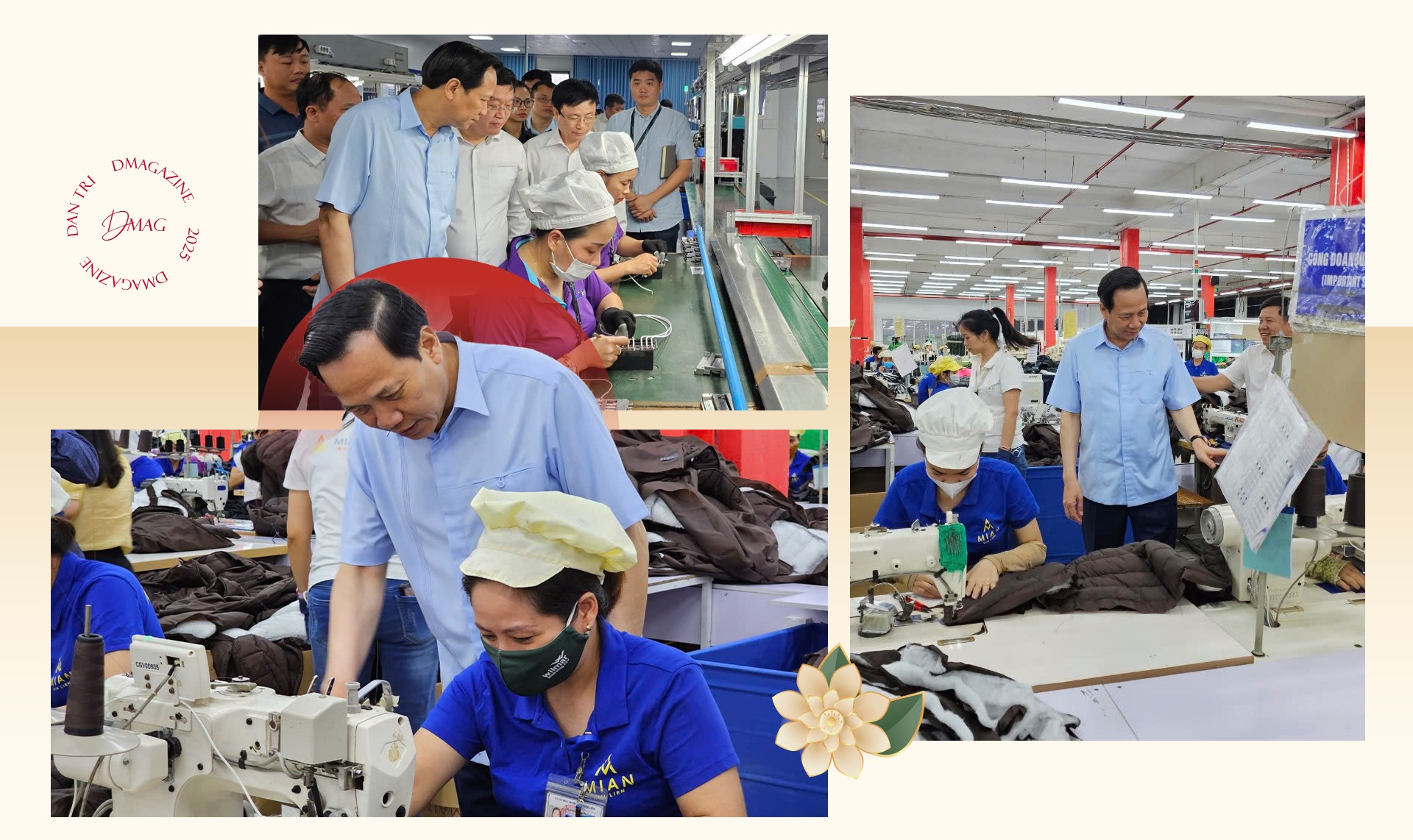
Compared with Resolution 27 of the 12th Party Central Committee on wage reform, has the reform goal for the enterprise sector, so that the minimum wage truly meets the minimum living needs of workers, been achieved, Minister?
- The goal mentioned in Resolution 27 of the Central Committee is to ensure that wages reflect the true cost of labor and are paid in accordance with the market price of labor. We have closely followed this viewpoint to specify it in the 2019 Labor Code. Article 91 of the Code clearly stipulates that "the minimum wage is the lowest wage paid to workers doing the simplest work under normal working conditions, ensuring a minimum standard of living for workers and their families, in accordance with socio-economic conditions".
Of course, it is not yet true to the wishes and reflects the rapid fluctuations of the market and prices, but objectively speaking, the salary in the business sector has approached the market, taken a step ahead and approached life faster. We understand the increasing pressure on workers' lives. However, in the public sector, our civil servants are still expecting salaries to approach those in the business sector.

In general, in terms of actual implementation, the minimum wage levels in 4 regions, by month, by week and by hour are assessed to be suitable to reality, contributing to improving the lives of workers but not causing negative impacts on businesses and the economy, and are basically agreed and supported by workers and the business community.
In my opinion, at present and in the coming period, the minimum wage still plays an important role in wage policy, is the driving force for wage growth and social security.
I would like to thank the Minister for the frank and useful discussion. I wish the efforts of the Minister and the entire industry to continue to be promoted, contributing to bringing Vietnam to the new era!
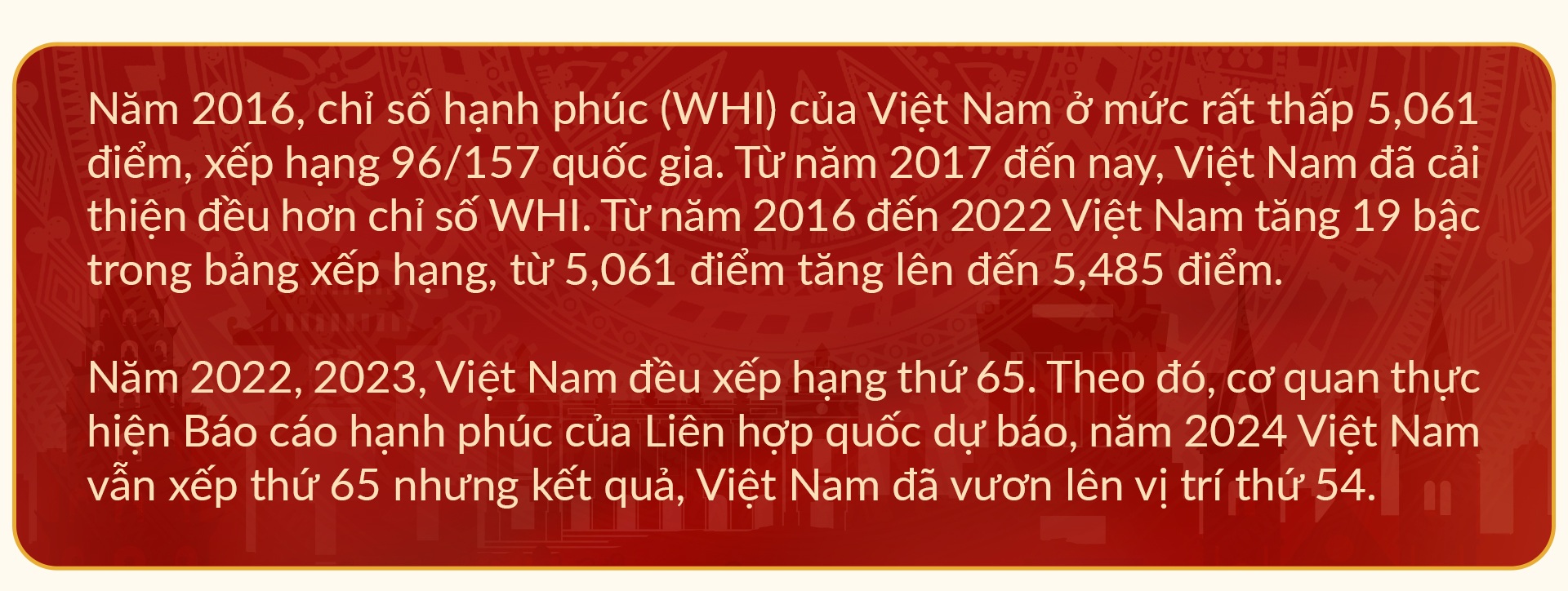
Content: Thai Anh
Design: Tuan Huy
Dantri.com.vn


![[Photo] Children's smiles - hope after the earthquake disaster in Myanmar](https://vstatic.vietnam.vn/vietnam/resource/IMAGE/2025/4/14/9fc59328310d43839c4d369d08421cf3)

![[Photo] General Secretary To Lam chairs the third meeting to review the implementation of Resolution No. 18-NQ/TW](https://vstatic.vietnam.vn/vietnam/resource/IMAGE/2025/4/14/10f646e55e8e4f3b8c9ae2e35705481d)
![[Photo] Opening of the 44th session of the National Assembly Standing Committee](https://vstatic.vietnam.vn/vietnam/resource/IMAGE/2025/4/14/03a1687d4f584352a4b7aa6aa0f73792)
![[Photo] Touching images recreated at the program "Resources for Victory"](https://vstatic.vietnam.vn/vietnam/resource/IMAGE/2025/4/14/99863147ad274f01a9b208519ebc0dd2)




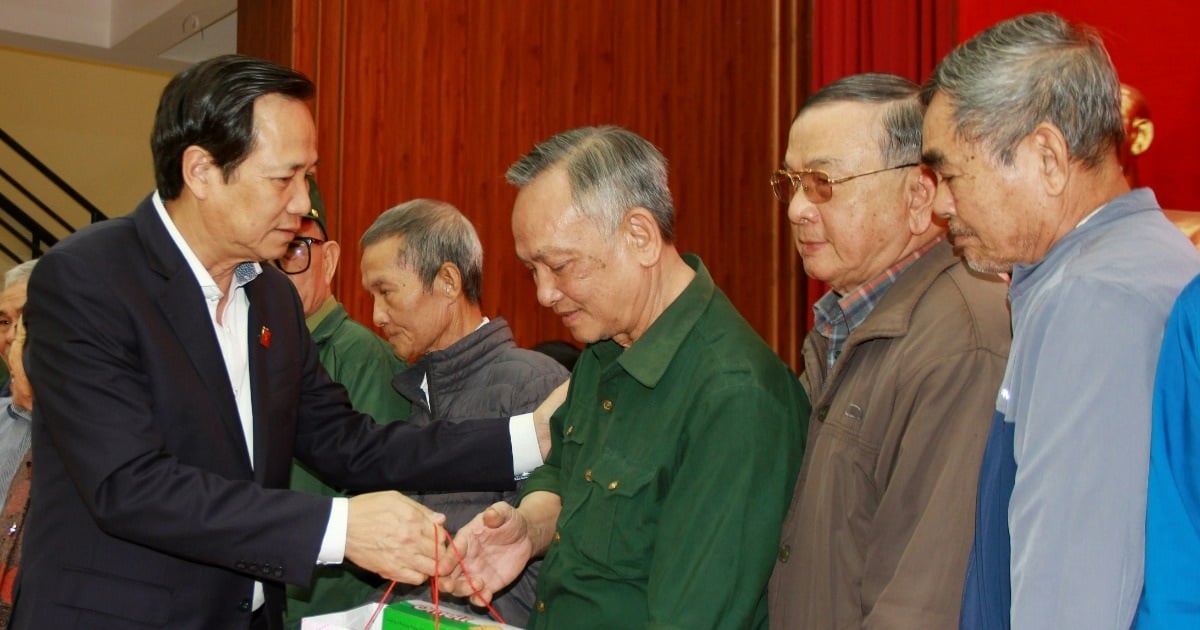
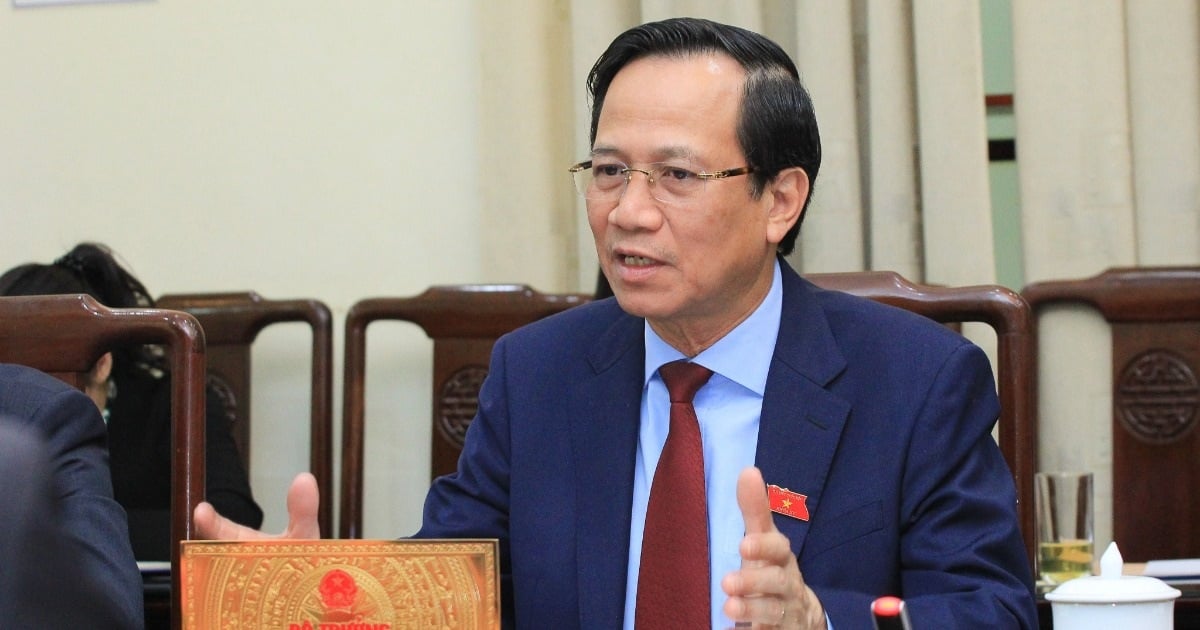
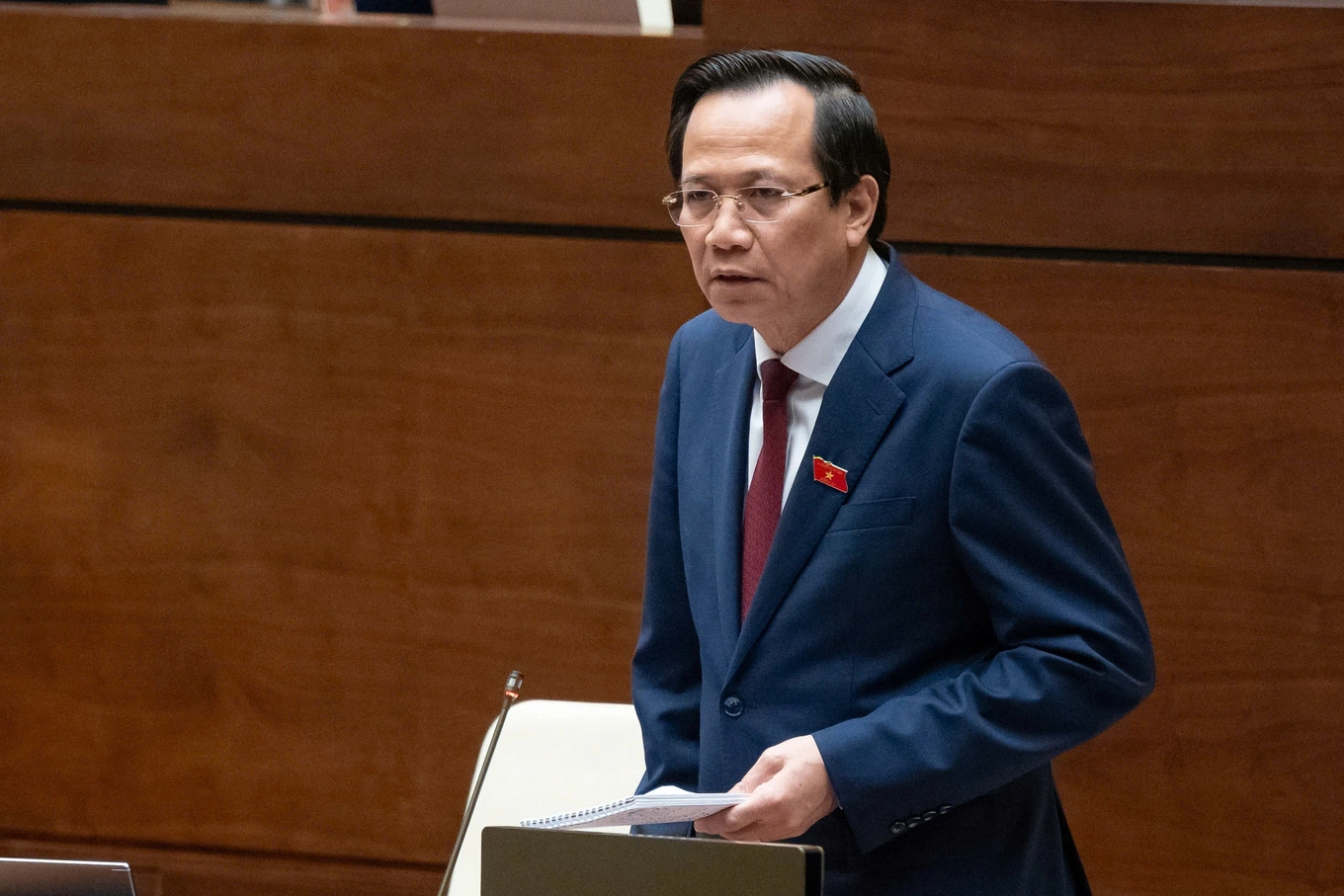




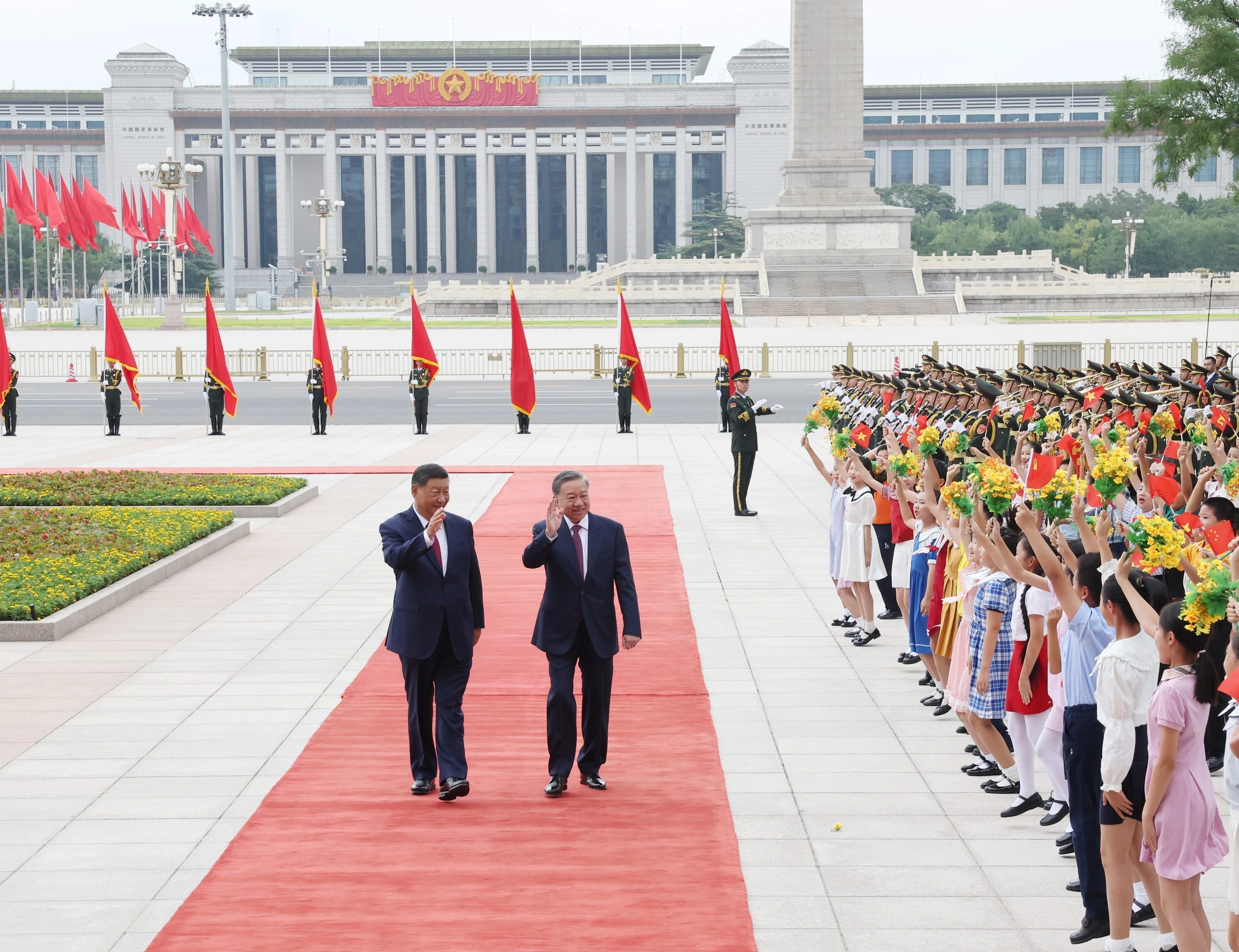






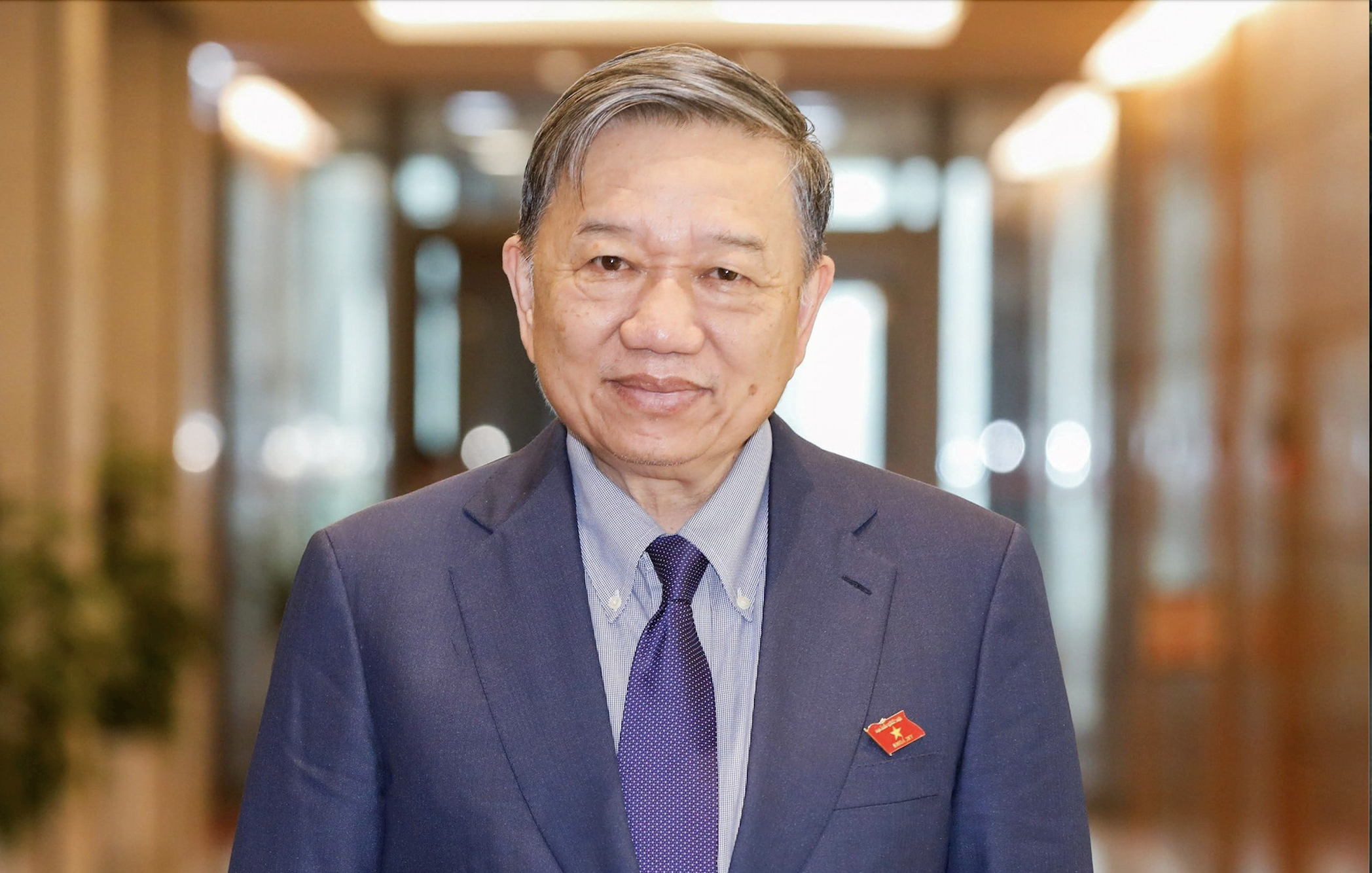


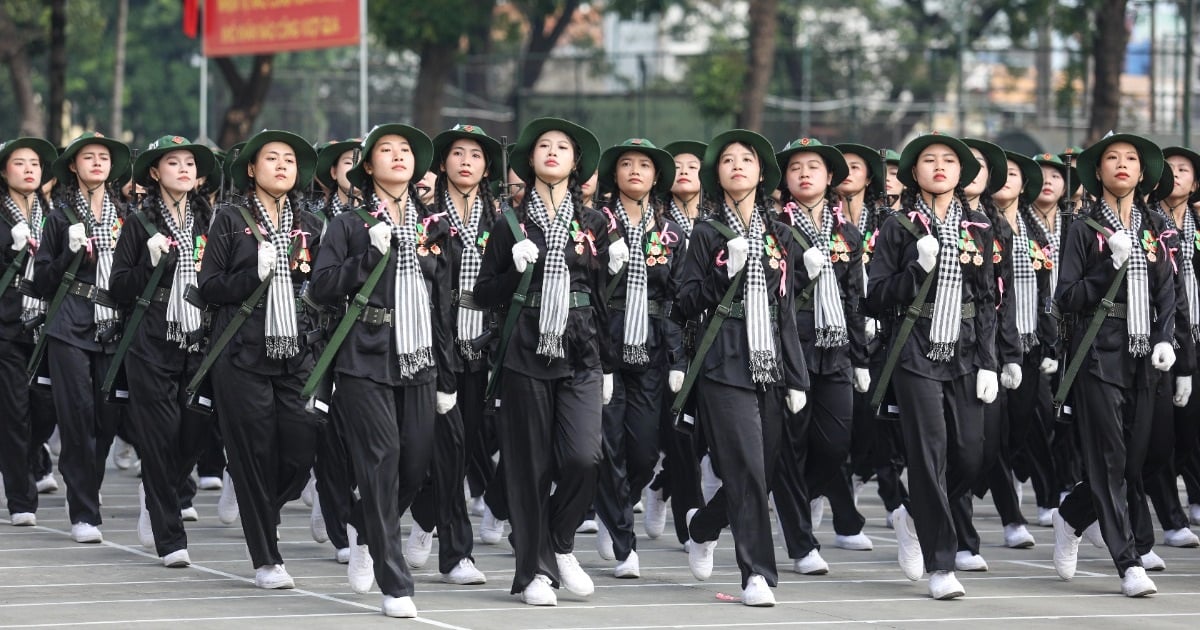






























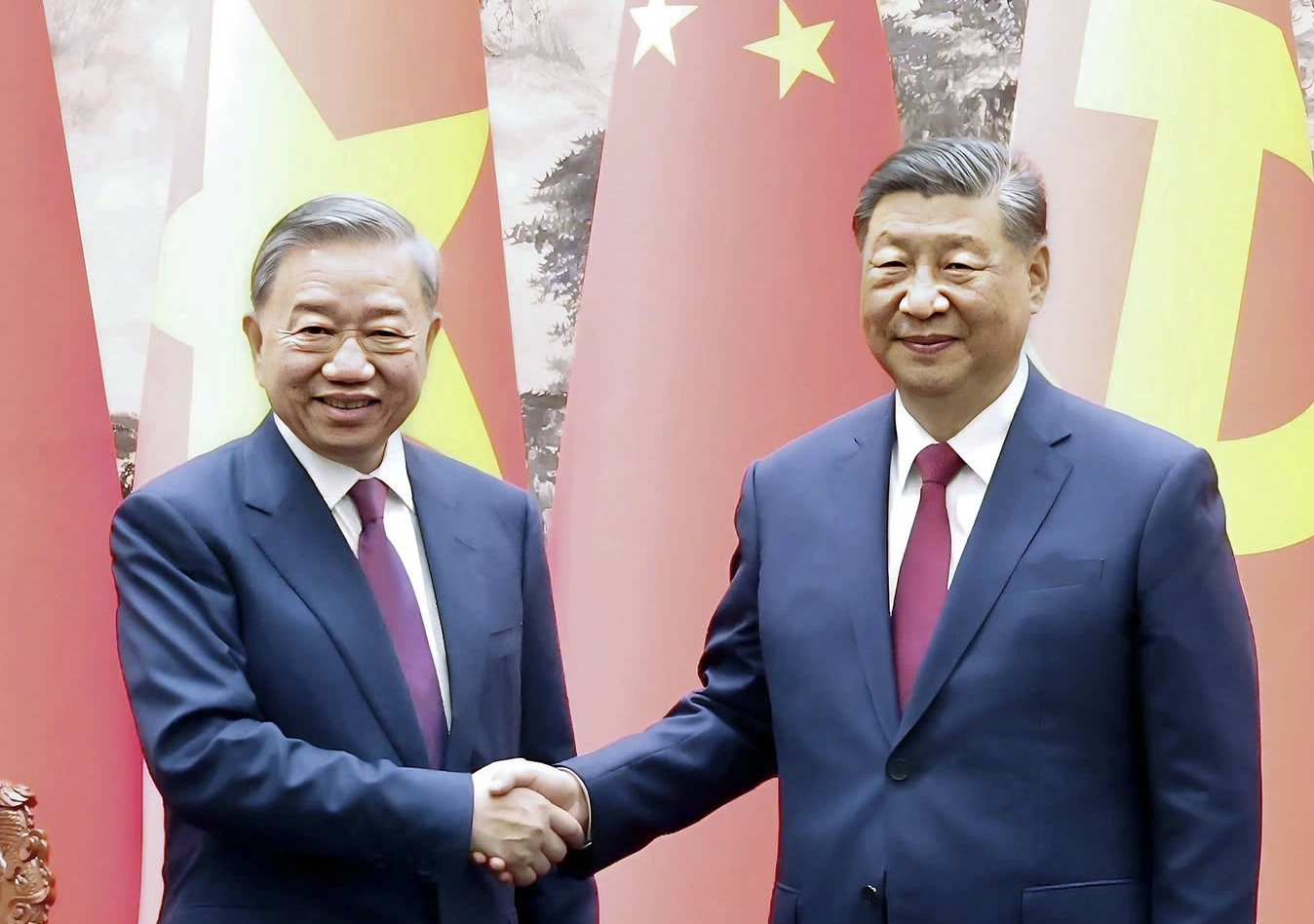











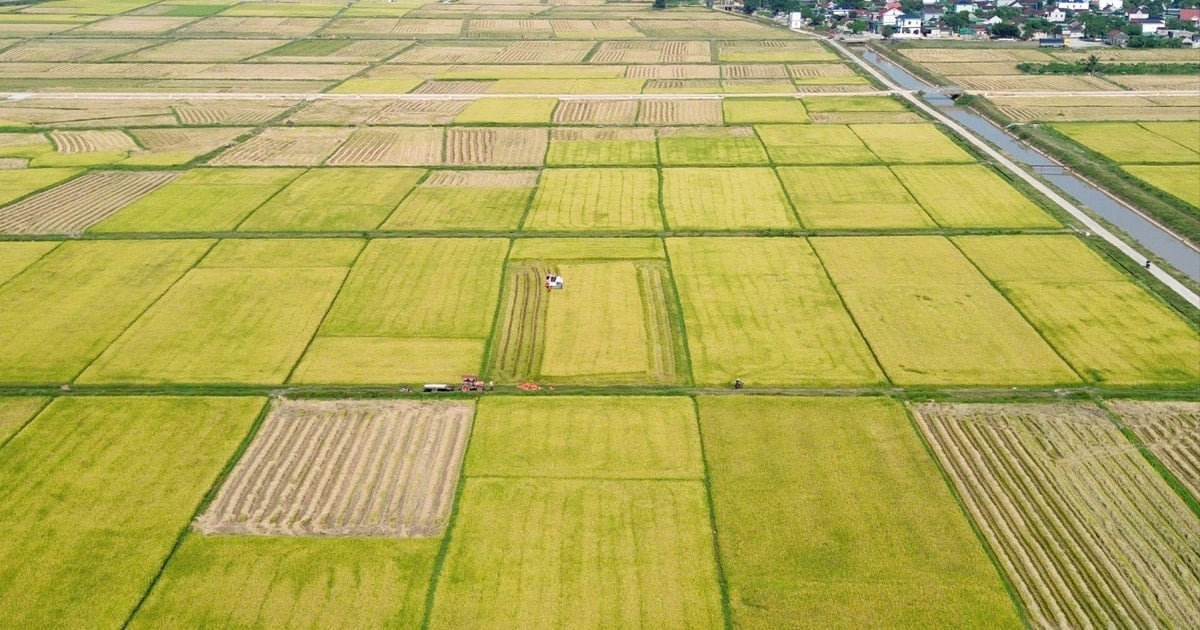

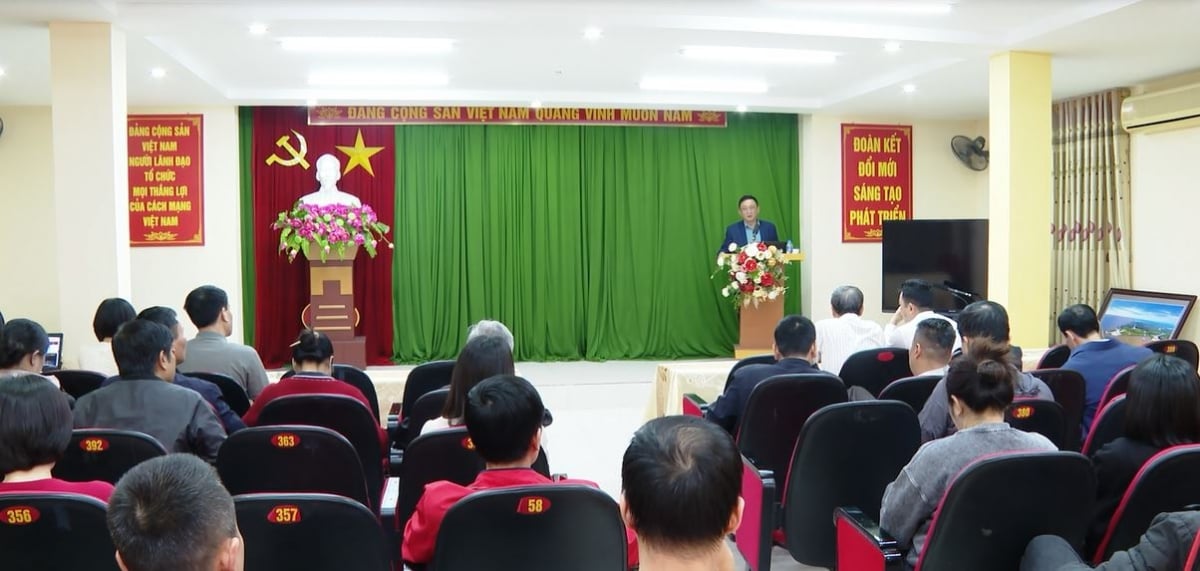












Comment (0)